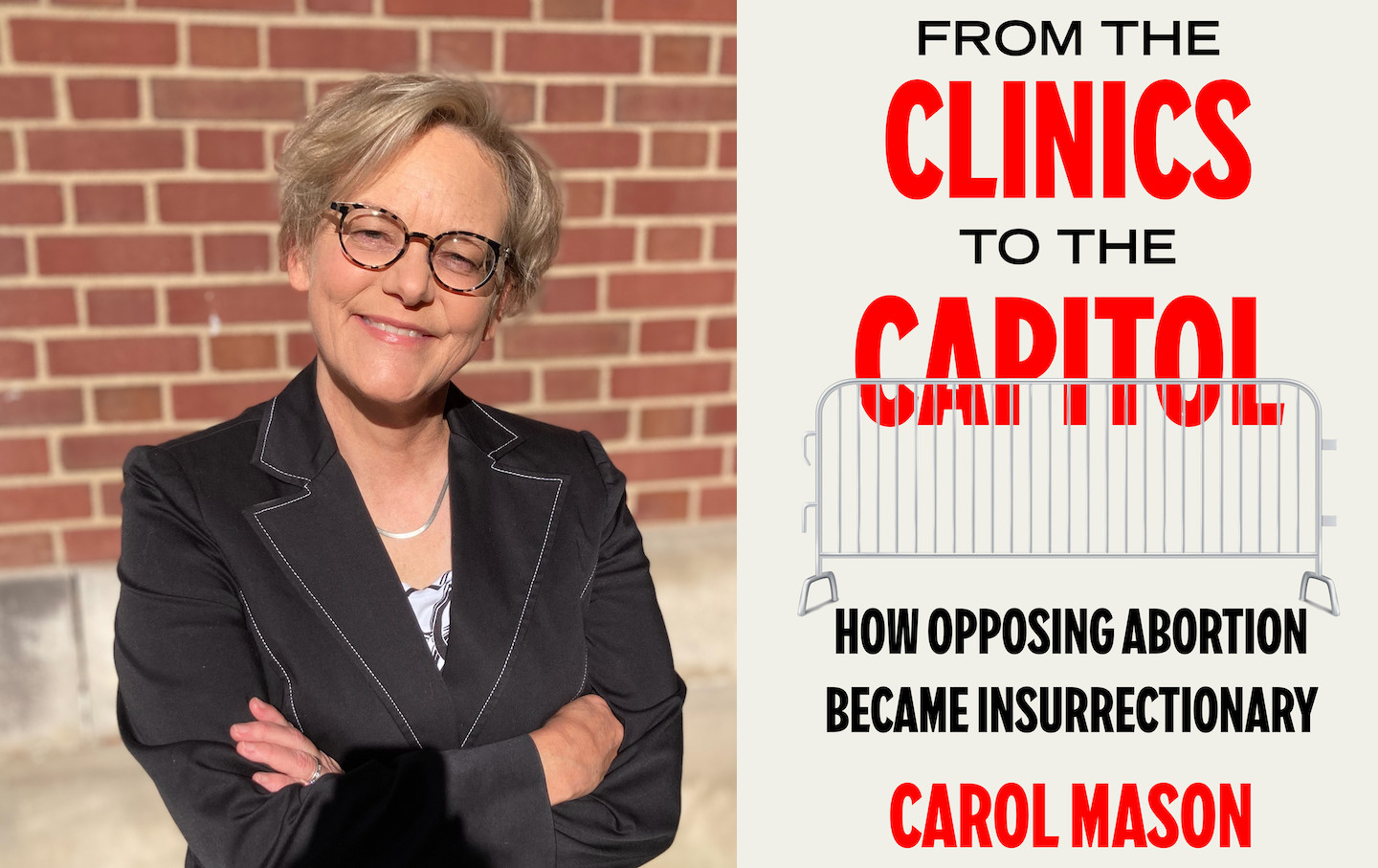The GOP Is Trying to Destroy Your Medicaid
Republicans are trying to ram through some of the most harmful anti-welfare policies in living memory.

The GOP’s so-called big beautiful bill, passed by the House in May, comes with an ugly surprise: It would force poor people into work in order to prove that they are worthy of life’s basic necessities. House Republicans, to help pay for their main goals—giving the wealthy even more tax breaks and ramping up the Trump administration’s brutal anti-immigrant regime—not only plan to force all states to institute work requirements in their Medicaid plans, but will also allow them to impose the harshest such rules ever. Their bill orders nearly all childless adults without disabilities to certify that they were working, volunteering, or going to school in the month before enrollment. But states could require people to show they’ve been working for as much as a year before they can be enrolled. Anyone who fails to submit the proper paperwork, meanwhile, would be barred not just from Medicaid but also from receiving subsidies for coverage obtained in the Affordable Care Act marketplace.
These changes would kick as many as 14.4 million people off Medicaid within a decade, according to the Center on Budget and Policy Priorities.
Republicans have claimed that they’re not going to cut Medicaid. “The president said over and over and over, ‘We’re not going to touch Social Security, Medicare, or Medicaid,’” House Speaker Mike Johnson said in February. “We’ve made the same commitment.” The program, which turns 60 this year, has become integrated into American life. It covers 83 million people—nearly a quarter of all Americans—and Republicans don’t want to be seen as taking it away from their constituents.
But work requirements have been included in the bill only because Republicans know they will reduce Medicaid enrollment and, therefore, spending. A look at the fine print shows this clearly: The bill estimates that Medicaid work requirements will save $273 billion, which can be used to help pay for the GOP’s tax cuts and its crackdown on immigration.
Attempts by states to implement work requirements prove that they are merely cuts by another name. When Arkansas implemented a Medicaid work requirement during the first Trump administration, more than 18,000 people lost their coverage. The work requirement, despite its name, “did not increase employment,” according to a 2020 paper.
Things have been going just as poorly in Georgia, which in 2023 created a new Medicaid offering with a work requirement. The state estimated that 50,000 people would enroll in its first year, but only about 5,000 had signed up a year and a half in.
The House bill would also force more people to meet work requirements in order to receive food stamps, applying them to everyone under 65 as well as people with children age 7 or older, and would also limit a state’s ability to waive the requirements during periods of high unemployment. The Urban Institute found that these changes would eliminate or reduce food stamps for 5.4 million people. The work requirements that already exist in the food stamps program have been found, just as in Medicaid, to deny people benefits they need without increasing the number of people who work.
The idea that poor people should be forced to work for meager government assistance is not a new one. President Ronald Reagan successfully whipped up resentment toward poor and Black people with his stories about welfare queens who supposedly lived large off of government checks. Bill Clinton ran for president on the promise to “end welfare as we know it.” He succeeded, ending a right to cash assistance for poor mothers and turning the process of qualifying for the program into a series of hoops for recipients to jump through, which many conservative states promptly lit on fire. One of the hoops was the requirement that people regularly prove that they were working or searching for work.
A lot of people don’t make it through. Today, just one in five poor people receives cash assistance, and an increasing number have neither cash benefits nor income from work. People subjected to welfare work requirements, meanwhile, are no more likely to be employed five years after they were instituted, and those who are employed tend to have unstable work that doesn’t last.
Back in the 1980s and ’90s, work requirements were applied to “welfare,” which was understood to mean cash assistance. But Republicans have worked hard to force almost any government program under the welfare umbrella. In a New York Times op-ed, four high-ranking Trump officials recently wrote that Medicaid, food stamps, and even housing assistance are “welfare” and called for establishing “universal work requirements” in all such programs.
It was always a stretch to imagine that Americans were able to live lives of luxury off of cash assistance and so needed to be forced into paid employment. It’s impossible to claim the same about programs that are merely meant to guarantee that no one goes without the very basics of life: food, health, and housing. These programs are not “the dole.” They help ensure that, in one of the wealthiest countries in the world, people aren’t left to starve, suffer homelessness, and die.
Sustain independent journalism that will not back down!
Donald Trump wants us to accept the current state of affairs without making a scene. He wants us to believe that if we resist, he will harass us, sue us, and cut funding for those we care about; he may sic ICE, the FBI, or the National Guard on us.
We’re sorry to disappoint, but the fact is this: The Nation won’t back down to an authoritarian regime. Not now, not ever.
Day after day, week after week, we will continue to publish truly independent journalism that exposes the Trump administration for what it is and develops ways to gum up its machinery of repression.
We do this through exceptional coverage of war and peace, the labor movement, the climate emergency, reproductive justice, AI, corruption, crypto, and much more.
Our award-winning writers, including Elie Mystal, Mohammed Mhawish, Chris Lehmann, Joan Walsh, John Nichols, Jeet Heer, Kate Wagner, Kaveh Akbar, John Ganz, Zephyr Teachout, Viet Thanh Nguyen, Kali Holloway, Gregg Gonsalves, Amy Littlefield, Michael T. Klare, and Dave Zirin, instigate ideas and fuel progressive movements across the country.
With no corporate interests or billionaire owners behind us, we need your help to fund this journalism. The most powerful way you can contribute is with a recurring donation that lets us know you’re behind us for the long fight ahead.
We need to add 100 new sustaining donors to The Nation this September. If you step up with a monthly contribution of $10 or more, you’ll receive a one-of-a-kind Nation pin to recognize your invaluable support for the free press.
Onward,
Katrina vanden Heuvel
Editor and Publisher, The Nation





